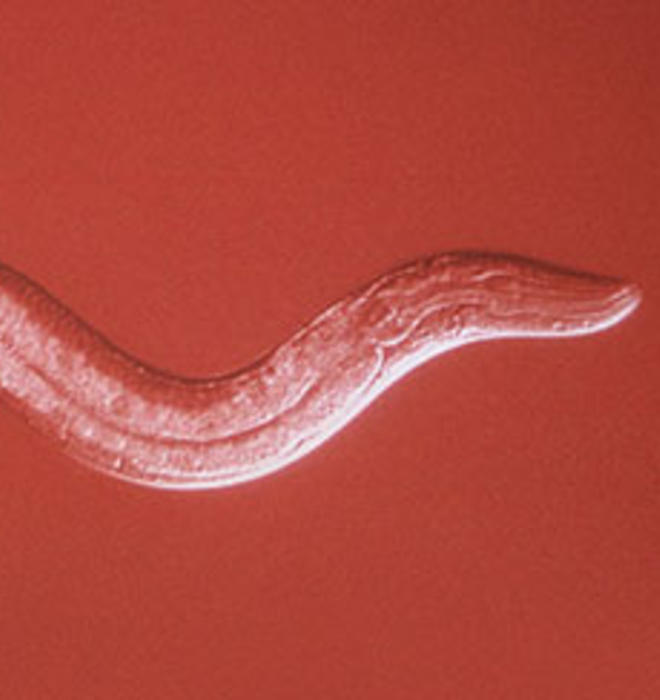
From Murphy's Lab: Sex Kills
The latest finding from Murphy’s lab — which graduate student Cheng Shi stumbled upon while conducting work on reproductive aging — may strike people as disconcerting: For females, sex kills (in worms, that is). In a paper published in the Dec. 19 issue of the journal Science, Murphy and Shi report that male sperm and seminal fluid interfere with the mother’s stress-response system, making her dehydrate, shrink, prematurely age, and die seven days after mating.
The vast majority of C. elegans are hermaphrodites; because their bodies contain both egg and sperm cells, mating does not require a male. The hermaphroditic worms try to avoid the males, but the males need the hermaphrodites to pass on their genes to future generations. Killing the mother means she would be unavailable to mate with another male, giving a genetic advantage to the father. The same occurs in roundworm species in which there are separate male and female worms and no hermaphrodites, and Murphy suggests that it may be a way to maximize a male’s reproductive success.






No responses yet